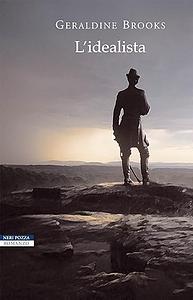Take a photo of a barcode or cover
Meh. I really found it hard to not only believe this was supposed to be Marmee and Papa March, but I found it hard to LIKE the characters in this book. I mean, he was...well, human, and I'm sure some people act like him, but he was just frustrating and such an idealist. He wasn't a bad person, but like...meh. And Marmee? She was just...vile. Only way I see fit to describe her. The last scene between her and was just bad.
The book wasn't badly written, and I enjoyed parts of it, even if the beginning was...less than captivating for some reason, but the plot of the story was interesting, and it was a good read, just not something I enjoyed as much as I thought I would.
Spoiler
Grace, and her accusation and just...omg, like, woman, stop, you're an embarrassment to everything, sorry, I feel strongly about herThe book wasn't badly written, and I enjoyed parts of it, even if the beginning was...less than captivating for some reason, but the plot of the story was interesting, and it was a good read, just not something I enjoyed as much as I thought I would.
4.5 stars. Told from the perspective of the husband/father in Little Women about his time serving in the Civil War.
She envisions what was happening for Mr. March while Marmee was home with "The Little Women." The impact of the War, his dealings with slaves before and during the War, impact of his experiences on his marriage. Nice connections to Louisa May Alcott's book, and a good story on its own. Discuss-able.
I very much enjoyed this book. It's the story of Mr. March, the father of the girls in Little Women. While the classic book tells the story of a year in the life of the 4 girls and wife of a man who leaves them to become a chaplain in the Civil War, Brooks picks up the story of Mr. March, the chaplain and tells the tale of a year in his life during the war.
The Marches were a Massachusetts family, very forward thinking and eager to help the cause of slavery. Mr. March enlists as a 40 year old man, very aged for those days, with the knowledge that he will be doing his part as a preacher to help the union troops. His values and expectations are hit full force as he experiences the realities of war, the nastiness, the harshness, the ability to inflict pain, the hatred - that the war brings out in the best of people. His courage is put to the test on more than one occasion and as he writes to his family, he spares them of the miseries of war and of his own spirit.
One of the things that intrigued me was the fact that Mr. March was a vegetarian, indeed a vegan. Throughout the book I figured it was the author who was imposing some sort of hidden agenda into this character. Not until I read the afterword did I figure out that she had based his character on actual journals of Mr Alcott, Louisa May Alcott's father. And Mr. Alcott, did actually experiment with veganism. I wish I had read this beforehand, because rather than be a spoiler, it would have allowed me to marvel at the fact that such thought existed 150 years ago.
One other thing that brought this narrative close to home. My great great grandfather enlisted in Massachusetts army, as did his 2 sons. My GGF lied about his age to enlist. He enlisted at age 54 by giving the false age of 44 and lasted a year before being wounded in combat.
The Marches were a Massachusetts family, very forward thinking and eager to help the cause of slavery. Mr. March enlists as a 40 year old man, very aged for those days, with the knowledge that he will be doing his part as a preacher to help the union troops. His values and expectations are hit full force as he experiences the realities of war, the nastiness, the harshness, the ability to inflict pain, the hatred - that the war brings out in the best of people. His courage is put to the test on more than one occasion and as he writes to his family, he spares them of the miseries of war and of his own spirit.
One of the things that intrigued me was the fact that Mr. March was a vegetarian, indeed a vegan. Throughout the book I figured it was the author who was imposing some sort of hidden agenda into this character. Not until I read the afterword did I figure out that she had based his character on actual journals of Mr Alcott, Louisa May Alcott's father. And Mr. Alcott, did actually experiment with veganism. I wish I had read this beforehand, because rather than be a spoiler, it would have allowed me to marvel at the fact that such thought existed 150 years ago.
One other thing that brought this narrative close to home. My great great grandfather enlisted in Massachusetts army, as did his 2 sons. My GGF lied about his age to enlist. He enlisted at age 54 by giving the false age of 44 and lasted a year before being wounded in combat.
slow-paced
I've enjoyed this all three times I read it. Tonight I get to talk about it with at least 10 people at the Rifle Branch Public Library.
I would suggest thsi book if you enjoyed Little Women and maybe even suggest re-reading Little Women before you read this. I liked the concept of the book but the story was very difficult to follow at times
adventurous
emotional
informative
inspiring
slow-paced
I did not enjoy this book. What a boring, weak main character and story. How did this win the Pulitzer?
dark
emotional
reflective
sad
tense
fast-paced
Plot or Character Driven:
A mix
Strong character development:
Yes
Loveable characters:
Yes
Diverse cast of characters:
Yes
Flaws of characters a main focus:
Yes





